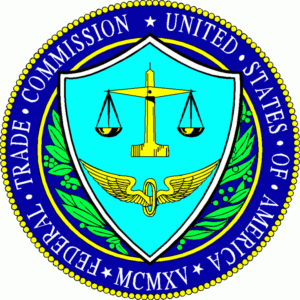
The Federal Trade Commission just announced a consent judgment with a dealer group, its president and vice president, and a marketing supplier and its owner. It results from a lawsuit in federal court over advertising campaigns it says used an “urgent recall notice” in a mailer with a “warning” that the recipient’s vehicle may “be under an important factory safety recall.”
According to the FTC, the vehicles owned by many recipients had no open recalls.
The notice was bright red and included the dealership’s name and address. The FTC contends that the promotion was intended to produce business, not to alert vehicle owners to necessary recalls. The complaint charges that customers who called were directed to come to the dealership for an appointment where they would be sold products and services, and this produced numerous complaints to franchisors about these campaigns.
Under the consent judgment, the dealer will not be required to pay any civil penalty or remuneration to consumers. However, that does not mean this is not a serious outcome for the dealer group. Because the case was filed in federal court, the agreement to end it is a federal court judgment. Future violations can be enforced by federal court orders with serious consequences. The dealer group will be under the thumb of the FTC for twenty years and will have to develop a robust compliance program to avoid future federal court enforcement actions for alleged violations.
There are several lessons to be taken from this latest FTC action.
- The FTC is becoming more aggressive on car dealer issues. As we have discussed, the Dodd Frank Wall Street Reform and Consumer Protection Act gave the FTC greater authority and a larger budget to oversee car dealers’ practices. The FTC has been using those tools with increasing intensity. This lawsuit is the third in a year and a half filed in federal court against motor vehicle dealer groups instead of administrative actions to be decided by the five Federal Trade Commissioners. Administrative agencies may be slowing down or retrenching under President Trump, but the FTC, in its oversight of motor vehicle dealers’ practices, is not one of those.
- Advertising with a marketing effect involving recalls is radioactive. As part of its statement accompanying the announcement of the agreement, the FTC clarified that the National Highway Traffic Safety Administration has standardized the format of official safety recall notices that manufacturers send to owners. NHTSA did that, as FTC stated, to “help protect consumers from misleading sales and marketing materials that mimic, in their wording and presentation, legitimate safety recall alerts from manufacturers.” The Commission is intent on preventing confusion of consumers. Manufacturers are the ones designated to give the standardized message about recalls. In the language of the FTC’s notice accompanying the complaint and the consent judgement “Put the brakes on any promotion that deceptively implicates recalls or safety.”
- Do not trust to chance that employees understand consumer recall rights and use of Safercar.gov. Train your staff. If customers contact your dealership to ask about recalls, employees must understand how to discuss facts. When vehicles of your line-make come in for service, service advisors must check for open recalls and explain the options to customers. Everyone in the dealership should be well-versed in using Safercar.gov so they can explain to customers how customers can check the recall status of their own vehicles for their protection and the protection of their families.
- Using a promotion devised by a marketing company will not shield a dealer from liability. Some dealers believe that if they use a marketing program from a third party vendor, they can point to that vendor if there is a problem. Or they can look to the vendor for indemnification. That simply is not the case regarding FTC enforcement. The FTC will always look to the dealer in whose name the advertising takes place. Indemnification (even if the vendor is sufficiently robust financially) is no protection where the remedy is an injunction with ongoing compliance and reporting obligations for twenty years.
- The fact that the dealership is a corporation or a limited liability company is no protection from FTC action for the owners or officers. The FTC will go after the individuals behind a target company. Here, it was the president and vice president of the dealership group who were included as defendants and who are signatories to the consent judgment. In any settlement agreements, the FTC wants to reach affiliated companies and even future companies. The way to do that is to make sure that the people behind the company are themselves party to the litigation and any settlement agreement.
- Because of the potential for company liability and personal liability, it is critical that a dealer carefully review a marketing program. It is not enough for your marketer to tell you it is legal. It is the obligation of the dealership to check for itself. If there is any doubt, consult an attorney with knowledge of advertising requirements applicable to dealer advertising.
